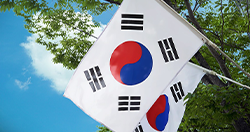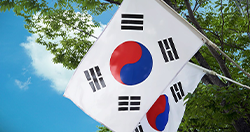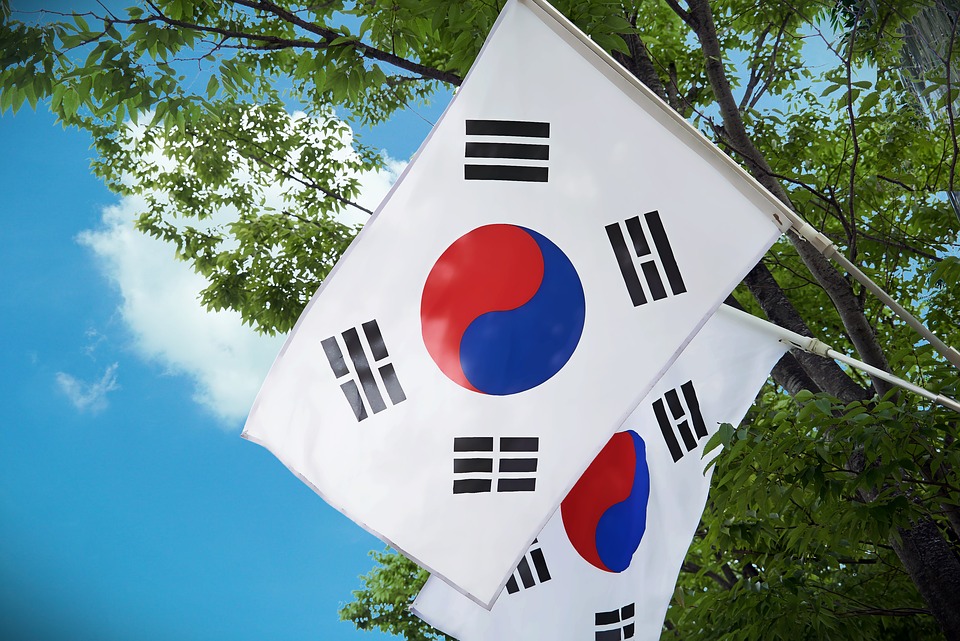By James Paek, One Young World Ambassador
Monday, April 15, 2019. Erik Brunetti, founder of the streetwear clothing company FUCT, is outraged. His brand was denied trademark status (for obvious reasons) and today he's fighting for what he believes is his right to free speech. In fact, he has taken his case all the way to the U.S. Supreme Court. Today, justices there are discussing whether clothing brands bearing the "f-word" should be allowed federal patent protection.
Meanwhile, over on the other side of the globe, South Koreans are embroiled in their own free speech quandary: whether it's legal to proclaim support for the leader of North Korea, a country with whom they are still at war (actually, "armistice" is the official status). The National Security Law, which for 70 years has been used to jail South Korea citizens for showing support for their neighbors to the north, is being called into question in what may be a new era of free speech for the nation.
What Does Free Speech Mean in 2019?
If you're an advocate of free speech - or even if you simply find global politics fascinating - these two very different cases can tell you a lot about the two countries they hail from. They also shed light on one of the most hotly contended issues of our day: the right to say whatever you want in public, no matter what the consequences may be.
For a long time, leaders in South Korea have felt those consequences were just too dire. Sharing a border with your worst enemy is, after all, a highly volatile state of being. Rooting out supporters of the regime in North Korea was considered a top priority - a matter of national security - and South Korean leaders needed a law with teeth. Enter the National Security Law.
Why is the National Security Law So Powerful and Angry?
Enacted in 1948, South Korea's National Security Law was designed to regulate "... any anticipated activities compromising the safety of the State”. This enabled them to systematically attempt to purge the nation of traitors, spies, and other Communist sympathizers who posed a grave danger to the budding democracy after the Korean War. Since then, thousands of people have been jailed (some executed) for allegedly spying or even just for having sympathies for Pyongyang.
But some say the teeth of this law are just too sharp for 2019. It's been called a "Tool of Oppression in an Insecure World" and in 2010 the international organization called Human Rights Watch has demanded that the government "abolish or fix" it. From jailed missionaries to innocent bystanders prosecuted simply for not ratting out pro-North Korean co-workers, the law has set its angry teeth deep into the people of South Korea. Some claim the law is used unjustly, merely to tamp down political opposition to whatever party happens to be in power at the moment.
[VIDEO] South Korea's strict national security law is being challenged by a wave of activists showing open support for the upcoming visit of North Korean leader Kim Jong-un. https://t.co/NHku8oESVK
— The Korea Times (@koreatimescokr) December 9, 2018
Why 2019 May Finally be the Year the NSL Gets a Makeover
Supporters for an upcoming visit to Seoul by North Korean leader Kim Jong Un held a public rally earlier this year. It was an obvious challenge to the National Security Law - one that would have been condemned in outrage just a few years ago. But South Korea's current leader, President Moon Jae-in, has started a campaign to improve relations with North Korea and as a result, the law isn't enforced as strictly as it used to be.
While many hope that this is a sign of things to come, many South Koreans want to the law just the way it is - over half, according to a recent survey.
It's definitely time to hold a discussion about the relevance of this law for 2019. It's a discussion we all look forward to having and the consequences of the outcome seem a lot more relevant to global politics than what any given streetwear designer wants to call his clothing brand. Sorry, Supreme Court, today's just not your day!


